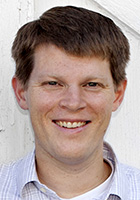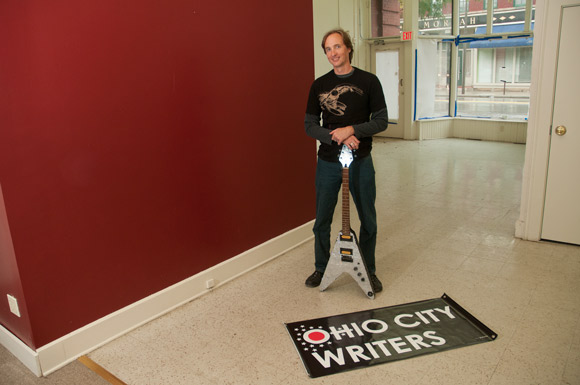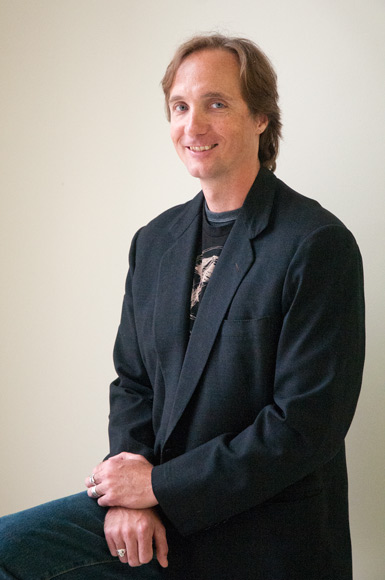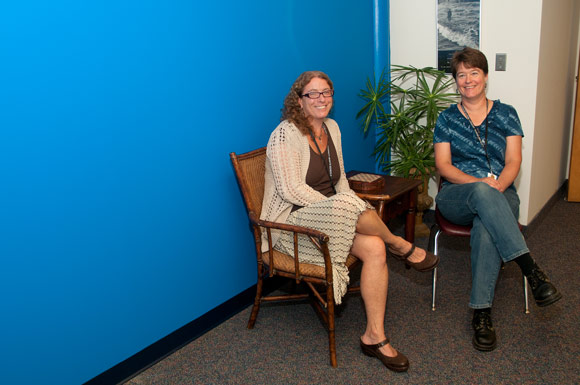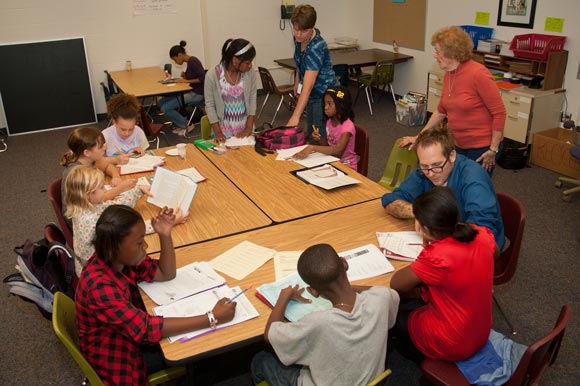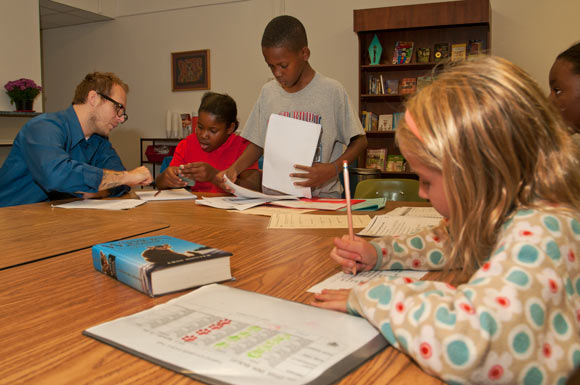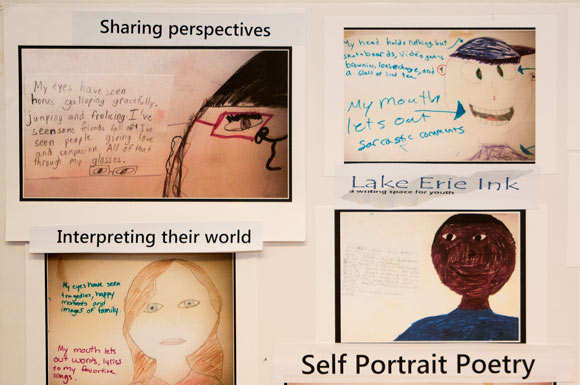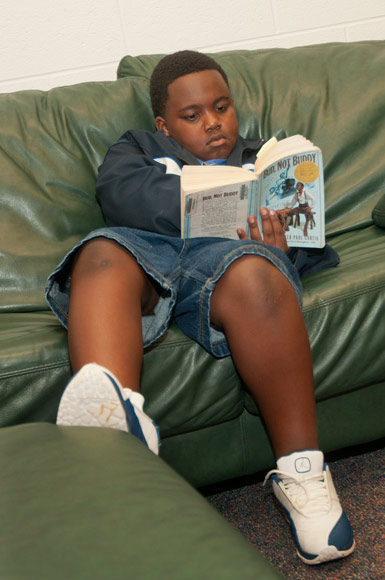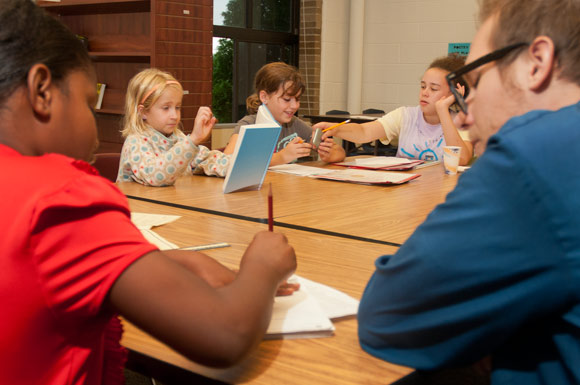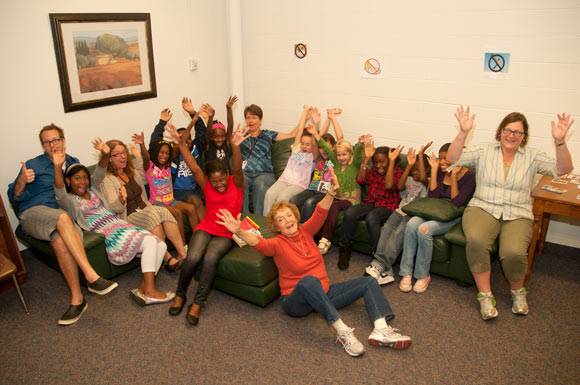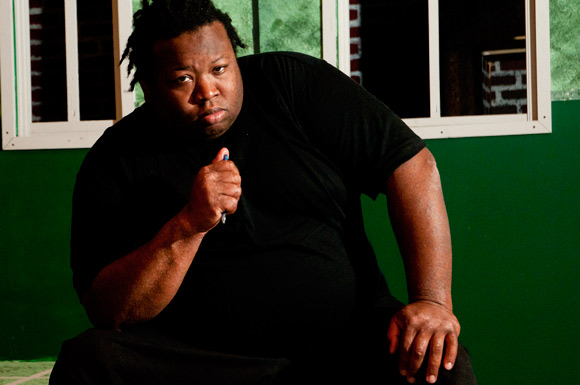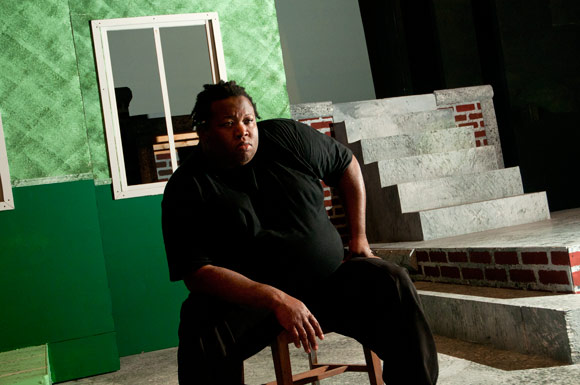the write stuff: new breed of creative writing workshops inspires next gen of indie thinkers
Lonely Girl is nobody special. Her long, black hair tumbles down over her face like curtains, making it easy to miss her. Yet there is more to Lonely Girl than meets the eye. She has superpowers, and someday everyone will know how special she is.
Lonely Girl isn’t real; she lives in the mind and comic book of Isabel M., a fifth grader at Gearity Elementary in University Heights, who attended a three-week comic book writing camp this summer hosted by Lake Erie Ink (LEI). The fledgling nonprofit group, which recently moved into newly renovated digs in the former Coventry School in Cleveland Heights, offers free writing workshops and after-school tutoring for youth.
Cynthia Larsen, who co-founded Lake Erie Ink with fellow teacher, writer and Cleveland Heights parent Amy Rosenbluth, says that students like Isabel are the reason she has dedicated herself to teaching creative writing to kids. “We’re connecting with kids in a way that’s authentic,” she says. “We look for the jewel and make it shine.”
In Ohio City, former Cleveland Scene editor Frank Lewis recently signed a lease to occupy a long vacant storefront at West 32nd and Lorain Ave. He’s chosen that location to launch Ohio City Writers, a new center inspired by 826 National, a nonprofit group created by Dave Eggers that uses creative, out-of-the-box methods to teach writing.
And, in the shadows of the Cleveland Clinic’s shiny buildings, playwright Michael Oatman has spent the summer working with teenagers in a production of his new play, You Got Nerve!, which deals with rivalries between kids on Cleveland’s east side.
Across the U.S., verbal SAT scores have declined steadily since the late ‘70s. These scores correlate with students’ ability to readily learn new things, to communicate with others, and even to hold down a job, researchers say. Not surprisingly, these scores also predict a pupil's future income and competitiveness in a global economy.
Yet in Cleveland, a new breed of literary activists is trying to reverse this downward spiral. More at home in a coffee shop-style lounge, converted retail storefront or theater stage than a conventional, white-walled classroom, this new creative writing vanguard offers an alternative to the test-obsessed curricula of today’s schools.
“We want to support teachers and help kids to think creatively,” says Lewis.
Rock Star Supply Store
Teachers like to say that writing is 50 percent revision, yet that’s a tough sell to students who struggle with writing or see it as something well outside their comfort zone.
Frank Lewis is hoping a Rock Star Supply Store will help. That’s why he’s opening one in an Ohio City storefront -- it’s a hook for Ohio City Writers (OCW), a nonprofit youth writing center that he’s launching this fall. The concept for the store was inspired by 826 National and its writing centers across the U.S.
“The idea started as a lark in San Francisco,” explains Lewis, a journalist who was the editor of Free Times and Scene magazine from 2003-2010. “Dave Eggers wanted to open a writing center, but then he realized the site was zoned retail and had to sell something. So he jokingly said, ‘Let’s open a pirate supply store.’”
The Pirate Store opened in 2002 and was an instant success. Today, 826 National boasts eight themed writing centers across the country. From Boston’s Bigfoot Research Institute to Ann Arbor’s Robot Supply Store and Los Angeles’ Echo Park Time Travel Mart, the stores sell merchandise that funds the centers’ programs while also attracting families and kids to sign up for classes and workshops.
“It’s like a giant interactive billboard,” Lewis explains. “It’s key to their marketing efforts.”
Lewis decided to open a nonprofit writing center in Cleveland after attending an 826 National workshop last year. “I came away buzzing and couldn’t sleep for a few days,” he says. “They make writing so fun and engaging that kids can’t help but love it.”
Lewis says the Ohio City location will address a need while adding to the renaissance of the area. “There’s just so much going on here,” he says. “It’s centrally located, and I’m hoping to draw kids from Bay Village, Eastlake and right down the street.”
Of course, raising money to start a new nonprofit is daunting, especially in a tough economy. Lewis has been turned down by several foundations that aren’t funding new projects now, and OCW is not yet an official 826 National writing center. (Lewis has not yet applied for membership, but plans to do so.) He hopes to raise start-up funds from individual donations and approach foundations once OCW is up and running.
He’s been encouraged by the groundswell of support that he’s received from friends and colleagues, however. “When I contacted Eric Wobser of Ohio City Inc., he said starting an 826 National-style writing center had been on his wish list for a long time,” Lewis says. Ohio City Inc. agreed to lease space to OCW rent-free for the first six months.
The inspiration for launching a youth writing center came after Lewis taught a writing class on superhero origins at his son’s school in Cleveland Heights. “We spent six weeks on superheroes because the kids didn’t want to stop,” he says.
Lewis’ favorite part of being a newspaper editor was working with writers, he says, an experience that he believes will lend itself well to working with students.
“From ‘I’ve got this wacky idea’ to ‘here’s my finished draft,’ the process is very much the same,” he says. “How do we make this better while preserving the writer’s voice?”
Bigger Worlds Out There
Michael Oatman was inspired to teach playwriting to kids by his own experiences growing up in East Cleveland. “My world was so small and insular, I didn’t even know this stuff existed,” says Oatman, who won the Cleveland Arts Prize Emerging Artist Award this year. “Inner city kids need to know that they have options.”
Oatman is the playwright-in-residence at Karamu House Theatre -- quite an honor, considering he’s only the second in its history, and the first was Langston Hughes. He also teaches playwriting at various Cleveland schools and nonprofit youth treatment centers.
This fall, Oatman has been corralling a group of teenagers in a production of his new musical, You Got Nerve! “It’s like an episode of ‘Fame’ at every rehearsal,” he says with a laugh. “At any moment, one of these kids might break into song.”
Oatman’s latest work, which premiered this month at Karamu, tells the story of some students who are required to do community service work at a retirement home. Along the way, they learn unexpected lessons from the older residents.
“Cultural amnesia is a problem across the board with kids,” says Oatman. “They don’t know their own history. I talk to kids that don’t know who Run D.M.C. is.”
One of Oatman’s favorite aspects of teaching playwriting is watching students’ reactions when they see their own work performed onstage. “There’s something transformative and magical about seeing your words coming from the mouth of an actor,” he says.
Ultimately, he wants to inspire youth to discover worlds beyond their own neighborhoods through exposing them to playwriting and the arts. “The kids that get involved in crime and drugs often don’t even know that there are bigger worlds out there to choose from,” he says. “So it’s not even a fair choice.”
Some of the students he’s worked with have gone on to study theatre professionally. “I’ve watched them go off to New York,” he says. “That’s a very good thing.”
The Ink Spot
Writing programs such as Lake Erie Ink have the power not only to help kids like Isabel M. come out of their shells, says Rosenbluth, but also to help teachers.
“We can help teachers to look at kids in new ways,” she says. “Just because a kid doesn’t meet your eye, answer you or turn in homework doesn’t mean they don’t have something to say.”
On a recent Wednesday afternoon, a dozen students trickled into Lake Erie Ink and seated themselves at tables or on a large couch. Volunteer tutors walked around and helped the students with their homework. The diverse group of fourth through eighth graders seemed visibly comfortable here, as if they viewed the space as their own.
“This is a place where students lead,” says Larsen. “They take an idea and go with it.”
Both Larsen and Rosenbluth are thrilled with their new space at the former Coventry School, which contains a comfortable lounge that they’ve dubbed ‘The Ink Spot’ and a soon-to-be-outfitted computer room. Larsen says the location just feels right.
“It’s karma,” she says with a laugh. “Parents and students who went to school here are coming back to attend classes and workshops now. Everyone’s very happy.”
The nonprofit was awarded a two-year startup grant last year from a local family foundation. Now, Rosenbluth and Larsen are working to recruit volunteers, get their workshops up and running, and write grants to develop long-term funding.
All of these teachers say that youth writing programs should not be considered a luxury; rather, they should be deemed an essential part of teaching kids to think for themselves.
“All of the research shows a transfer of these skills,” says Rosenbluth. “Writing begets more writing, and that helps to nurture creative, independent thinking.”
Writing programs can also help youth to develop greater self-confidence and essential work skills, says Lewis. “Kids know more about writing and storytelling than they realize. It’s exciting when they realize it’s not just for other people -- they can do it too.”
Photos Bob Perkoski
- Images 1 & 2: Frank Lewis of Ohio City Writers
- Image 3: Amy Rosenbluth (left), and Cynthia Larsen, founders of Lake Erie Ink
- Images 4 - 10: Lake Erie Ink
- Images 11 - 12: Playwright Michael Oatman
